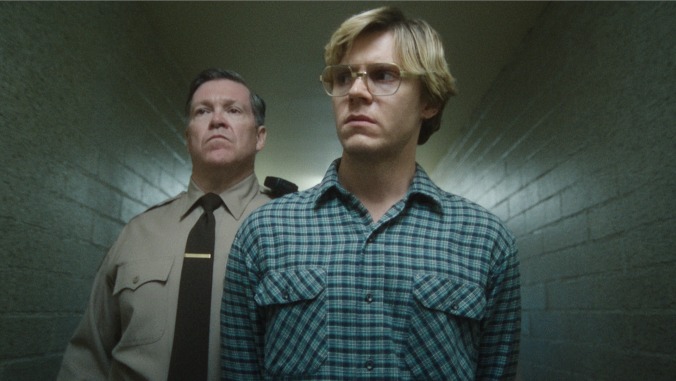Crew member says Dahmer—Monster set was "exhausting," caused "PTSD"
As one of two Black production assistants, Kim Alsup says the Dahmer—Monster set was "one of the worst shows" she ever worked on

Netflix’s Dahmer—Monster: The Jeffrey Dahmer Story’s eye-catching nature continues to prove a double-edged sword amidst new criticism from a production assistant who worked on the set. Kim Alsup calls Ryan Murphy’s limited series “one of the worst shows” she’s ever worked on—specifically, she tells The Los Angeles Times, as a Black woman.
Alsup initially shared her discontents in a now-private Twitter thread and has since opened up to The Times about exactly why she’s choosing not to watch the series. Although Alsup said things improved while filming the series’ Janet Mock-helmed sixth episode “Silenced,” overall the main thing Alsup credits her Monster experience with is newfound “PTSD.”
“I just feel like it’s going to bring back too many memories of working on it. I don’t want to have these PTSD types of situations,” Alsup says. “The trailer itself gave me PTSD, which is why I ended up writing that tweet and I didn’t think that anybody was going to read.”
Per Alsup, that PTSD stems from her “exhausting” experience on a set with no mental health coordinators, made worse by being one of only two Black crew members working the series. “I was always being called someone else’s name, the only other Black girl who looked nothing like me, and I learned the names for 300 background extras,” she recalls.
Despite colossal opening weekend numbers, Monster’s streaming premiere has been steeped in controversy. Alsup is not the first person to criticize the series’ handling of Dahmer’s violence. She’s also not the first Black woman to do so— Rita Isbell, the sister of Dahmer victim Errol Lindsey, has also spoken out against the series.
Isbell, whose emotional 1992 impact statement from Dahmer’s sentencing trial is recreated in the series, has said Netflix never contacted her about using her likeness or monetizing her brother’s trauma. It’s a cruel irony, given that the series grapples with how authorities’ refusal to investigate the young, queer, and majority-P.O.C. men Dahmer killed victimized them a second time.
“I feel like Netflix should’ve asked if we mind or how we felt about making it. They didn’t ask me anything,” Isbell shares in an essay for Insider. “They just did it… But I’m not money hungry, and that’s what this show is about, Netflix trying to get paid.”